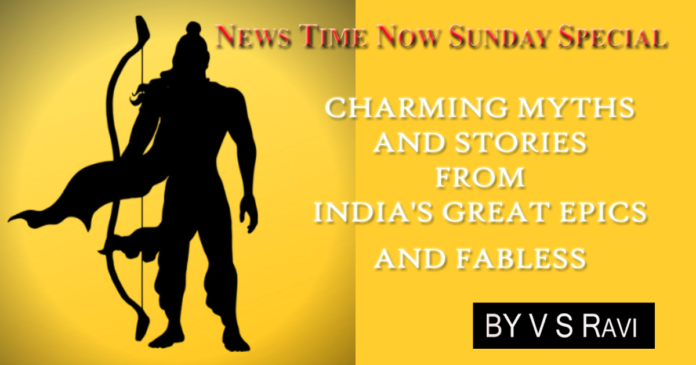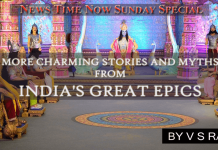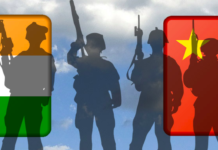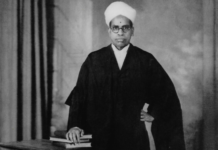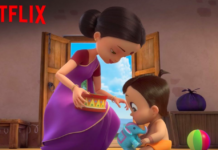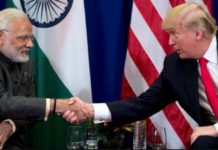One unique feature of India’s great epics, scriptures and fables is that they are packed with charming myths and anecdotes not to be found in any other literature in the world. I propose to narrate a few which, because of their affectionate acceptance by all people as true and not apocryphal, have acquired a special sanctity. There may be many variations in the details for these stories as narrated in different languages. But I have stuck to the versions I have read or heard in Andhra Pradesh and Tamil Nadu. Constraints of space would allow me to narrate only a few interesting stories.
I would like to begin by narrating an incident relating to Thyagaraja, perhaps the greatest composer of classical music.
Everyone knows that Thyagaraja was one of the greatest devotees of Lord Rama. Every kriti (song) composed by him was based on some incident in Rama’s life. This cannot be said about any other human being, leave alone musicians. In almost every song he begged Rama to give him darshan or come to his house to bless him.
It would appear that Lord Rama was so pleased with Thyagaraja’s devotion that one day he came in disguise (Hanuman and Sita who accompanied him were also in disguise) to Thyagaraja’s house. But Thyagaraja who seemed to have vague intimations of their true identity compelled them to have dinner with him and his wife. As they sat down, Hanuman prepared himself to serve the various items of food to Rama, and Sita, as was his usual practice. However, Thyagaraja brushed him aside insisting that he himself would serve the food. Hanuman was taken aback. Rama calmed Hanuman down and advised Hanuman to permit Thyagaraja to serve him saying that he was as great a devotee as Hanuman himself.
There is another story about Rama, Lakshmana and Sita. When Rama was to be made king of Ayodhya, there were festivities throughout the land. All the people of Ayodhya, every man, woman and child were eagerly looking forward to taking part in the celebrations. The joy of Kausalya, Rama’s mother, knew no bounds. Sumitra, the mother of Lakshmana and Shatrugna, was also happy. So was Kaikeyi, the mother of Bharatha.
It was at this stage that Mandhara the wicked servant of Kaikeyi told her that she should be ashamed to take part in the celebrations and that she should request Dasaratha to make her son Bharata the king. Kaikeyi argued with Mandhara stating that Rama was the eldest son and that she should rejoice instead of wishing that Bharata should be made the king. But Mandhara sowed the seeds of jealousy in Kaikeyi’s mental soil and convinced her. Mandara also told her how to go about convincing Dasaratha, whose love for Rama exceeded his love for the other three sons! She asked Kaikeyi to wear black clothes, while receiving Dasaratha.
Dasaratha visited Kaikeyi and found her dressed in black indicating that she was in grief. Dasaratha asked her why she was unhappy. She asked him whether he remembered that he had once sanctioned her two boons. When Dasaratha told her that he did, she told him that the time had come to redeem the pledge (the two boons). Dasaratha indicated his willingness and asked her what she wanted. Then Kaikeyi played her cards shrewdly. She said that the first boon she wanted was that Bharatha should be crowned as King of Ayodhya instead of Rama. Dasaratha was stunned and tongue-tied. He pleaded with her to reconsider. But she did not, with the result he had to reluctantly and unhappily yield to her request.
Then he asked her what the second boon was. This is when Kaikeyi told him to send Rama on exile to Dandakaranya forest for a period of 14 years. Dasaratha was mentally shattered. He pleaded with her that he had agreed to make Bharatha the king and begged her to ask for any other boon which he would sanction without hesitation because he could not bear separation from Rama. But she was unwilling to relent. So Dasaratha had no option but to agree.
When Rama heard from Dasaratha about how he had to yield to the demands of Kaikeyi, Rama said to his surprise that he was quite agreeable to Bharatha being crowned as King. When Dasaratha told him about Kaikeyi’s second wish that he should be sent on exile for 14 years, Rama smilingly said that he was quite willing to go. The grief stricken Dasaratha then asked Rama why he could not refuse to obey his order for then he could tell Kaikeyi that Rama was unwilling to obey him. Why did he have a son like him who could never disobey him?
Rama then smilingly insisted on complying with Kaikeyi’s demand. And what was even more surprising was Laksmana’s request to accompany Rama, and Sita’s insistence that she should also be allowed to accompany Rama even to the great forest with harsh living conditions and cruel animals. She said she would willingly undergo such hardships just to be by Rama’s side.
Kaikeyi’s son Bharata was a man of noble character. When he heard of all these developments he abused his mother and refused to be crowned. He said that he would sit outside the palace for fourteen years paying homage to Rama’s slippers !
Another moving story concerns Bhishma, the greatest warrior in the Mahabharata.
Bhishma was superior in skill in archery to even Drona, Karna and Arjuna. Despite his moral stature he had to fight on the side of the wicked Kauravas, because of certain circumstances much against his own wishes.
In the Great War of Kurukshetra, Lord Krishna had become the charioteer of Arjuna. Krishna had vowed that as a matter of principle, he would not get down from the chariot or use a weapon to fight any of the enemies of Arjuna in the battle, come what may. On the other hand, Bhishma vowed that he would force Krishna to get down from the chariot to enter the battle.
As the battle between Bhishma and Arjuna progressed, Bhishma launched a volley of deadly arrows which pierced the chest of Arjuna, who was unable to evade them. He started to bleed profusely. Krishna at one stage got restless, impatient and annoyed that Arjuna was losing the battle. Forgetting his own vow he told Arjuna that he would get down from the Chariot, fight Bhishma with a weapon and kill him.
The incident was narrated by Veda Vyas in the original version in Sanskrit, as well as in the translation into Telugu by the poet Potana. As is the case of the Bible and the Rubaiyat of Omar Khayyam, the translation by Potana is supposed to be superior to the original of Vyasa ! Therefore I have narrated the version of Potana:
“As Krishna jumped from the chariot the brightness of his two Kundalas (special earrings) spread over the skies; as he jumped, the 14 worlds within his stomach shook. As he jumped with his CHAKRA not a WHEEL, the green (not yellow) shawl slid down.
Arjuna begged Krishna not to make him a laughing stock and to forgive him. Krishna jumped towards Bhishma like a lion leaping towards an Elephant, saying ‘I shall kill Bhishma and save you. Let go of my hand’- I beg such Lord Krishna to bless me.”
Bhishma thus succeeded in making Krishna come down from the chariot.
Bhishma himself narrated all the above facts with tears in his eyes to the Pandavas who had come to see him as he lay dying on the bed of arrows, even as the life force was ebbing away from his body.
I would now like to narrate a few poignant stories relating to Karna, the eldest son of Kunti. The sage Durwasa had given a magic boon to Kunti on being pleased with her services rendered to him while she was still a girl in her father’s house. She could call upon any deity she wished and have a child by him.
Curious to test the mantra out, she invoked Surya, the sun God who appeared before her and gave her a son. Karna was born with a golden armour that clung to his chest and a special pair of earrings called Kundalas. No arrow could pierce the armour and no weapon could harm the head and thus Karna was born invincible.
However, Kunti was terrified because she was not yet married. So she wanted to get rid of him. She put him in a small basket and set it adrift in a river. The basket was eventually found by a charioteer Adiratha. He and his wife had no children and so they adopted Karna as a son.
As Karna grew up to be a young man, he wanted to become a warrior. He approached the great guru Drona to teach him archery, but Drona refused to teach him and contemptuously told him to learn his father’s trade. Then Karna approached the great warrior Parasurama, Drona’s teacher, for learning archery. He knew about the hatred of Parasurama (who was a Brahmin) for all Kshatriyas and so told him that he was a Brahmin.
Parasurama taught Karna how to be a great archer and taught him the mantra for shooting the Brahmastram. One day Parasurama was sleeping with his head on Karna’s lap. Then a bee stung him (the bee was actually Indra, the father of Arjuna through Kunti. He did not want Arjuna to be ever defeated by Karna. Indra also did another very mean thing to harm Karna. He came to Karna disguised as a Brahmin and asked him to give him his armour, and special earrings. Karna, known for his proverbial generosity, willingly handed them over to Indra. Karna who had been invincible became vulnerable). Karna did not want to disturb Parasurama and endured the pain. On waking up Parashurama saw the wound on Karna’s thigh. Karna told him what had happened.
Parasurama was angry with Karna for having lied to him about his being a Brahmin. Saying that no Brahmin could endure such pain he concluded that he was a Kshatriya. He then cursed Karna saying that he would forget the mantra for Brahmastram which he had taught him, when he most needed it. Thus it was that Karna could not chant the mantra for shooting the Brahmastram while fighting Arjuna in the battle of Kurukshetra. After the demise of Karna in the battle of Kurukshetra, Arjuna boasted to Krishna that he had destroyed Karna. Krishna told him that he was wrong and that there were several reasons for Karna’s death, and so he could not vainly boast.
First of all there was Parasurama’s curse as narrated above.
Second: Karna had once come across a little boy who had dropped his glass of milk on the ground. In order to make him happy, Karna took the portion of mud on which the milk had spilt and squeezed the milk back into the glass. However, Bhoodevi ( Goddess earth) was furious and cursed Karna that she would one day squeeze him in a similar fashion, and that on that day he would die. As it happened, his chariot wheel got stuck in the ground in his battle against Arjuna in Kurukshetra. His charioteer Shalya refused to help him and Arjuna was able to shoot an arrow at the helpless Karna who was trying to lift the chariot wheel, and kill him
Acknowledgement: Shilpa Ravindran
Third: As narrated above his charioteer Shalya was reluctant to assist Karna in battle as narrated above, as he had never wanted to be on the side of the Kauravas. Imagine how difficult it is when your own navigator is not your side. On the other hand, Krishna actively guided and assisted Arjuna breaking his vow.
Fourth: During the battle, Karna shot an arrow which would have beheaded Arjun. Just then Krishna pressed the Chariot down with the result the arrow missed Arjuna’s neck and carried away his helmet.
Sixth : In return for the Kavacha (armour) and Kundalams (ear rings) which he had taken from Karna, Indra gave Karna a weapon called Shakti which could kill anybody. The only catch was that Shakti could be used only once. During the battle Bhima’s son Ghatotkacha was creating such havoc that under pressure from Duryodhana, Karna was forced to use Shakti to kill him. Anyway, Karna was confident of killing Arjuna with his arrows.
Seventh: Krishna asked Karna to even surrender his ‘righteousness’. Throughout his life, Karna was a person who was righteous. His ‘righteousness’ would have converted all arrows shot at him into garlands. For this reason, Arjuna would have been unable to defeat him.
Krishna, who knew this, explained to Arjuna that the Goddess of righteousness was protecting Karna. Therefore, Krishna, in blatant violation of his vow, went to Karna disguised as a Brahmin and asked him to give him his righteousness as a gift. Karna readily agreed and obliged Krishna. Pleased with this, Lord Krishna showed Karna his Vishwaroopa. Krishna also granted him a boon. Because of this, he was cremated on Krishna’s hand. However, these two factors were of no use to Karna in battle. To add to this Karna was unfortunately fighting the war from the wrong side.
Thus destiny also had played a major role, in Karna getting defeated. Nevertheless he got everlasting fame.
Acknowledgement: Ritu
Shishupala was a vicious king whose story has been mentioned in the Mahabharata. Krishna was the nephew of Shishupala’s mother. Shishupala was born with three eyes, four hands and he brayed like an ass. His parents decided to abandon him in a forest. When they were walking through the forest with their deformed newborn child, a ghost appeared before them and predicted that the child would grow strong and powerful and that all his deformities would disappear when the person who was destined to kill him took him on his lap.
Shishupala’s mother placed the child on the lap of everyone who came to the palace; however, nothing happened.
However, when Krishna took the child onto his lap, the child lost his third eye and extra limbs. He started crying like a normal child. Shishupala’s mother extracted a promise from Krishna that he would not harm her son.
However, Krishna said that he would forgive one hundred taunts and insults of Shishupala. Shishupala grew up to be a wicked man. He abducted maidens and indulged in reckless acts. He crossed the path of Krishna several times. Each time Krishna forgave Shishupala due to the boon given to his mother.
Shishupala was one among the several suitors of Draupadi. When attempting to lift the bow to shoot the target, he fell down. He was mocked by those present. He created a commotion when Arjuna married Draupadi.
He was also a suitor of Princess Rukmini. Her brother had chosen him to marry his sister. But Rukmini was in love with Krishna and eloped with him. He attacked Dwaraka when Krishna was not around but he found no success in this attempt.
Shishupala indulged in numerous evil actions but was forgiven by Krishna.
The finale of offences came at the Rajasuya Yajna performed by the Pandavas at Indraprastha. Shishupala objected to Krishna being given first honours and started abusing him. He also invited Krishna to fight, who at last declared that his promise of tolerating Shishupala’s one hundred insults was fulfilled. Krishna took out the Sudarshana chakra on the 101st insult and cut off his head.
The life of Shishupala is a lesson on how anger, jealousy and hatred can cause one’s downfall.
Acknowledgement: Mahabharata by Devdutt Pattnaik
Nothing illustrates the goals achieved by a student devoted to his teacher despite the wickedness of his guru, better than the story of Ekalavya.
Drona the guru of the Pandavas loved Arjuna. When Ekalavya, a forest dweller, approached him to teach archery he refused saying he had no time. In reality he was afraid that Ekalavya would become more skillful than Arjuna. So he told Ekalavya that if he had faith in him he could teach himself. Though dejected, Ekalavya made an effigy of Drona and practised archery. In time he became as skillful as Arjuna. He then went to Drona to express his gratitude. Drona, who was a mean and jealous person, asked him to give the thumb of his right hand as a fee. Ekalavya willingly chopped it off though he knew he could never shoot an arrow again.
Acknowledgement: Devvdutt Pattnaik
Once a rishi (a sage) in a forest approached the Pandavas for their help in retrieving the sticks he used for making a fire which had fallen from a tree and had got entangled in the horns of an antelope. The tree was near a pond. Yudhishthira, the eldest Pandava, deputed Nakula to chase it and bring back the sticks. However, by the time Nakula reached the pond the antelope had fled.
Nakula, who was thirsty, bent to drink the water before going in search of the antelope. As he was about to drink the water the Yaksha (the God of the lake) told him that he should first answer all the questions he would ask before sipping the water. Nakula could not see anybody. So he took a sip of the water and fell dead. Three other pandavas (not Yudhisthira) also died in a similar fashion.
Then Yudhishthira went to the pond. When the Yaksha stipulated the condition Yudhishthira volunteered to answer the questions, and answered all the questions correctly. Then the Yaksha asked the final question. He asked Yudhisthira ” What is the strangest phenomenon in all creation? ” Yudhishthira answered ” Around us we see human beings die all the time. But somehow we believe that we are immortal.”
The Yaksha was pleased with the correct answer and permitted Yudhishthira to drink the water. He also brought his dead brothers back to life.
This story goes to show that wisdom is more important than Valour. There are several versions of this story. In some versions the last question is not there.
Acknowledgement: Mahabharata Devdutt Patnaik
Once Draupadi was desirous of possessing a rare flower with a thousand petals which was growing in a plantain grove in a forest nearby. Since it was a long arduous journey she requested Bhima to secure it for her. Bhima set forth. On the way he saw an old monkey lying on the ground. Bhima asked the monkey to give way. The monkey told him to move his tail and go on his way. Bhima casually tried to move the tail but it didn’t move. He then used all his strength but found that the tail was immovable. Bhima realised that this was no ordinary monkey. The old monkey revealed his true identity as Hanuman. Bhima was thus humbled. Hanuman was the elder son of Vayu and Bhima was his younger brother.
This story goes to show that Hanuman was teaching him a lesson in humility. Acknowledgement: Mahabharata Devdutt Pattanaik
One day when the Pandavas were walking through the woods, Draupadi happened to notice a tree on which there was a low hanging fruit. She wanted to eat it but the tree spoke saying that the fruit had been hanging for 12 years. The tree also said that on the other side of tree there was a rishi (sage) who had been doing penance for twelve years. He would wake up that very day and would want to eat the fruit. The tree asked her to reattach the fruit to the branch.
Draupadi, who was terrified, requested Bhima to do so. He pleaded inability and she then asked Arjun. He answered that he could perform all sorts of things with his skill but would not be able to do this. The tree then said that had she been chaste she could have easily reattached the fruit. Draupadi replied that though she had been married to five brothers she had never allowed any of the four other brothers to share her bed for the one year during which she slept with one of the brothers. She added that as far as Krishna was concerned she treated him as a brother.
The tree persisted in saying that she was not speaking the truth that she was not chaste. Then Draupadi reluctantly agreed that she loved Karna but regretted that she could not marry him because of caste. She added that had she married Karna, she would not have been gambled away, would not have been publicly humiliated and would not have been called a whore.
However, the revelations came as a shock to the Pandavas, as they had failed Draupadi collectively and individually.
Having revealed the truth Draupadi was able to reattach the fruit to the tree
That evening the Rishi opened his eyes. He took a dip in a nearby river. He blessed the Pandavas and chaste Draupadi.
Acknowledgement: Mahabharata by Devdutt Pattanaik






























